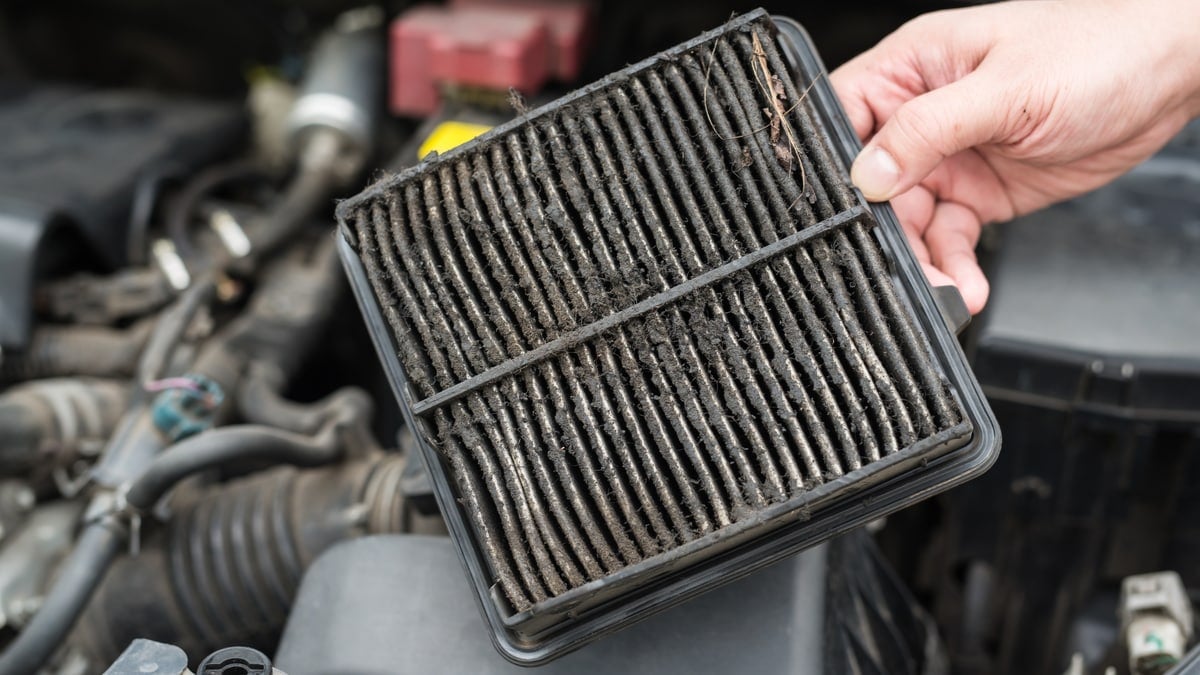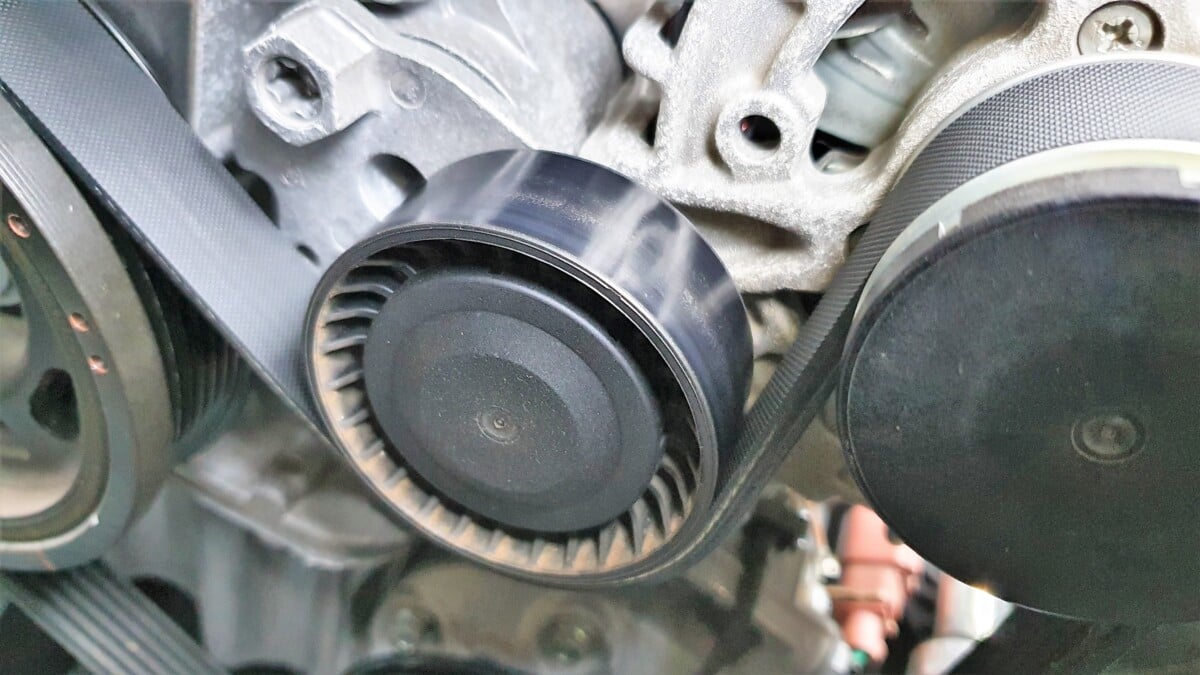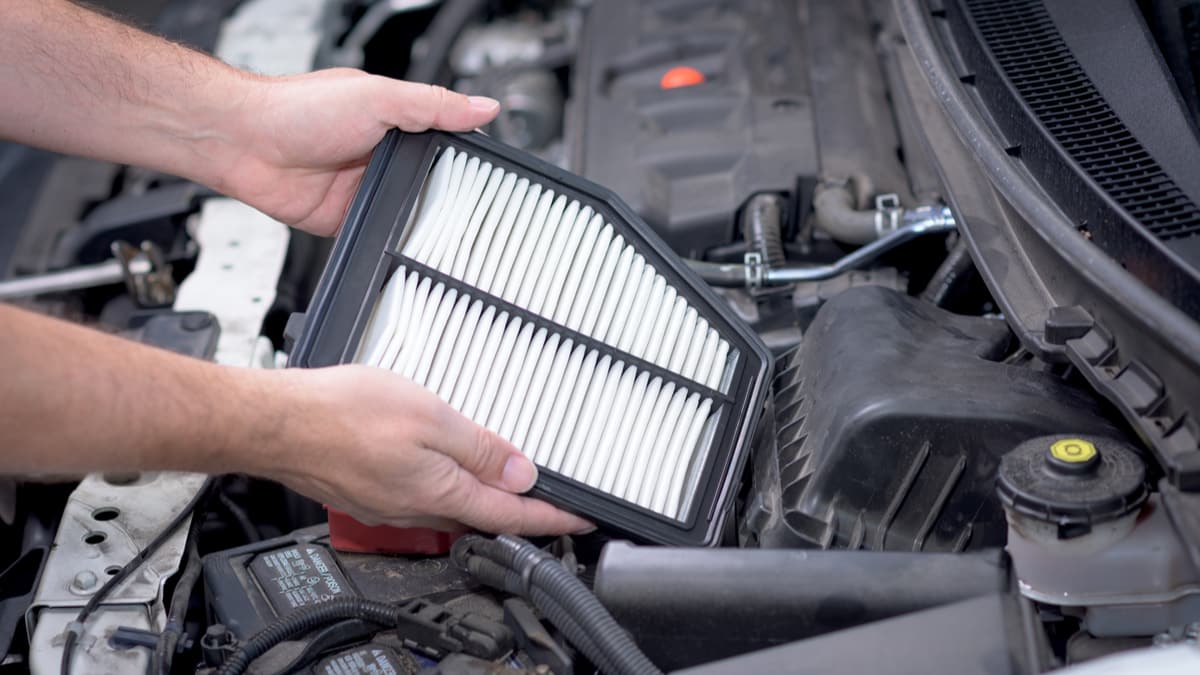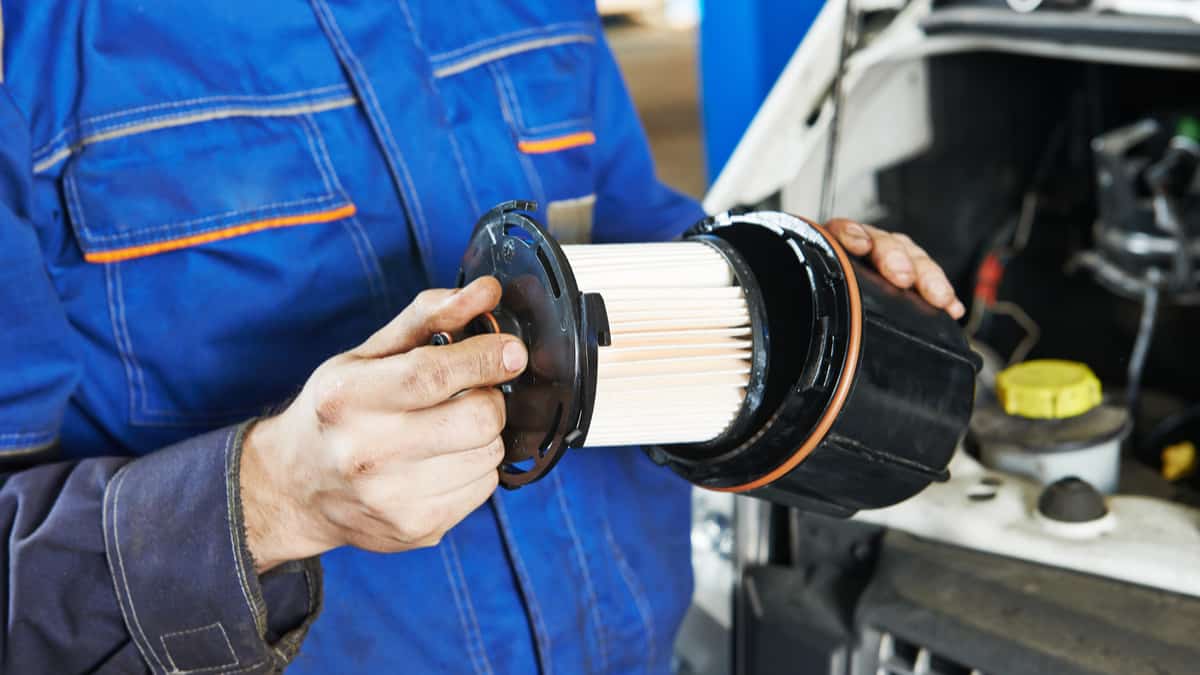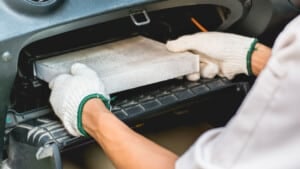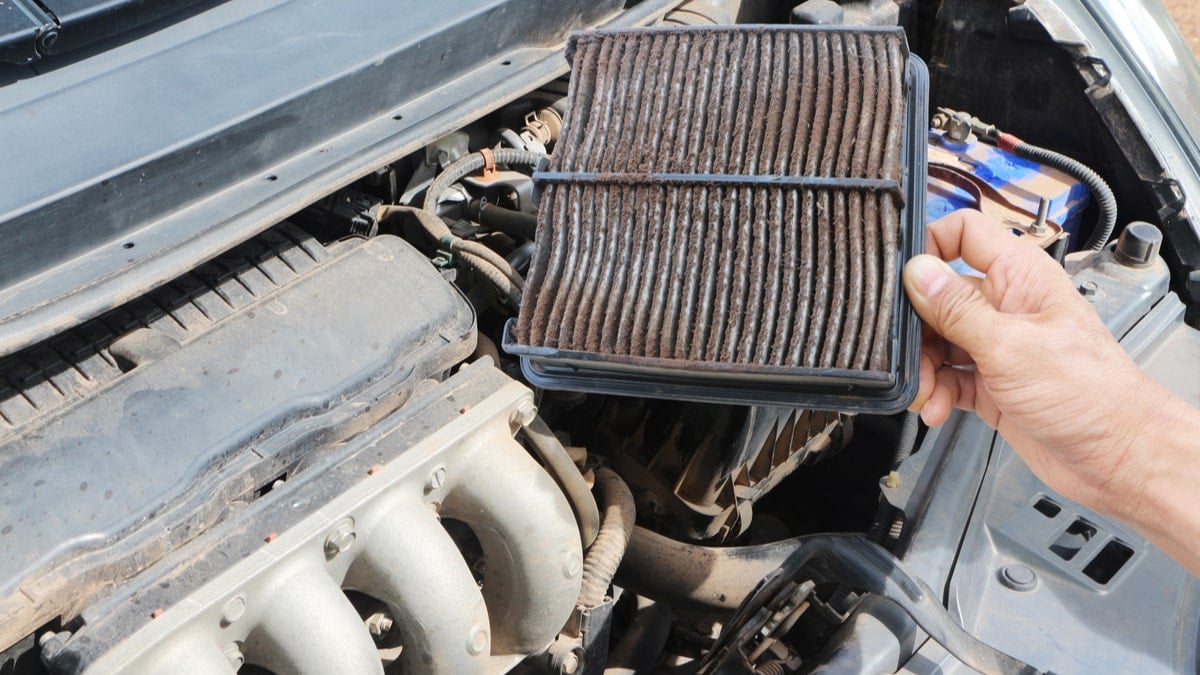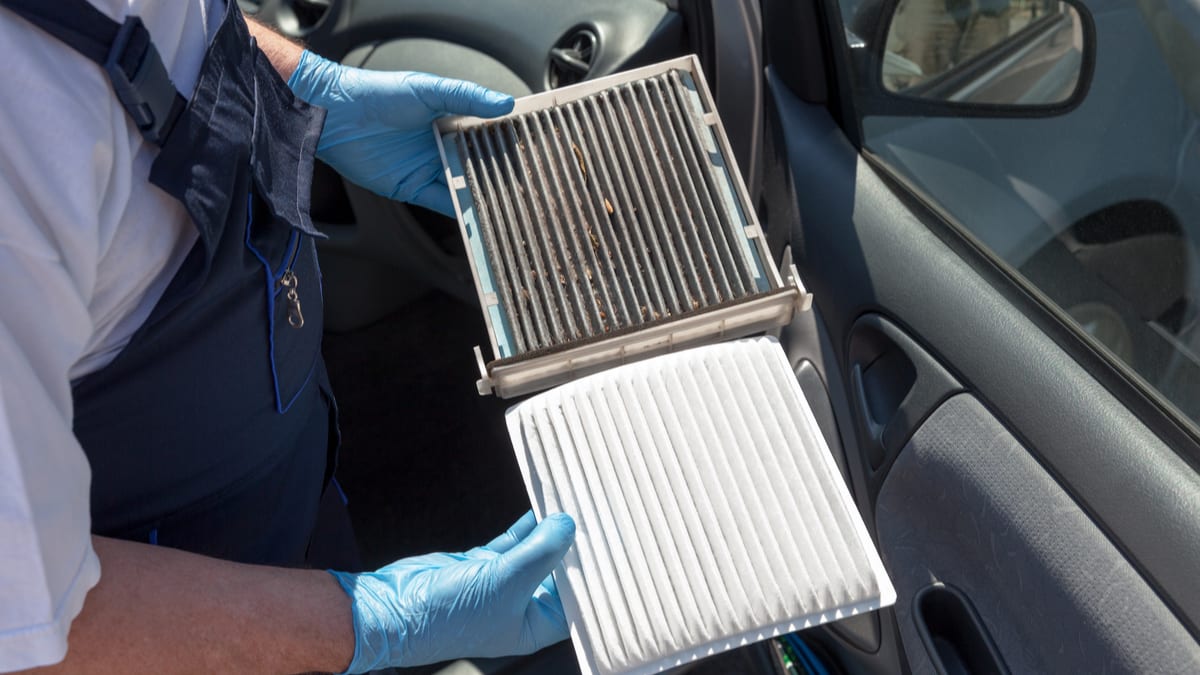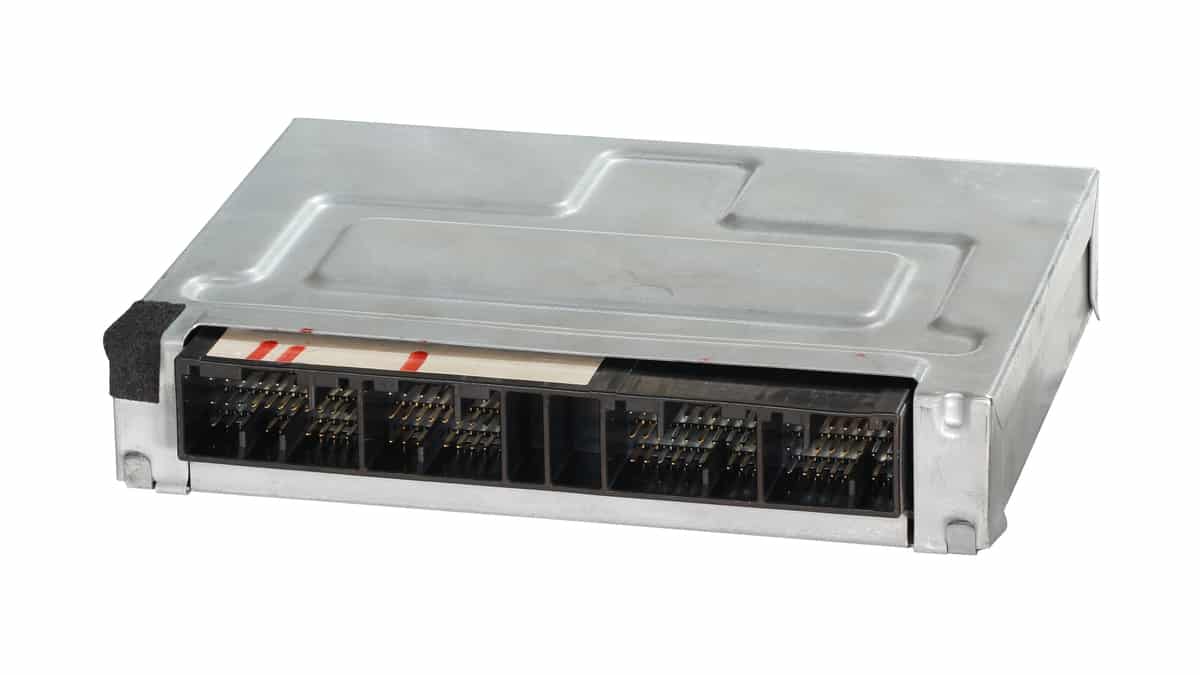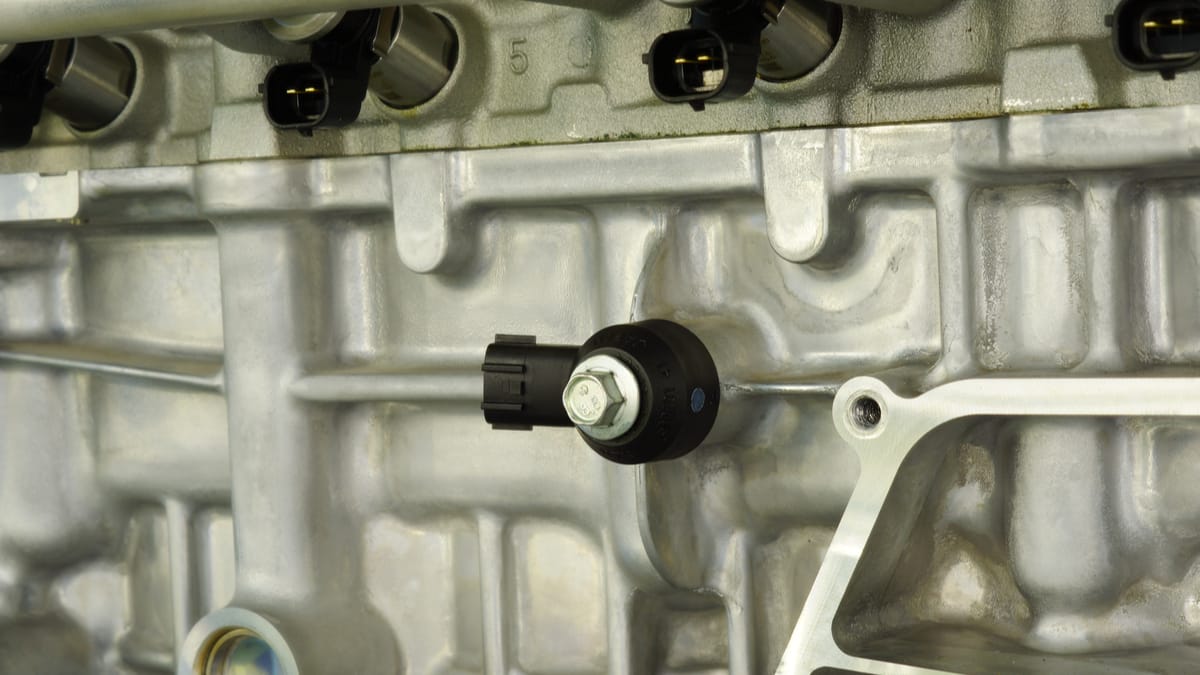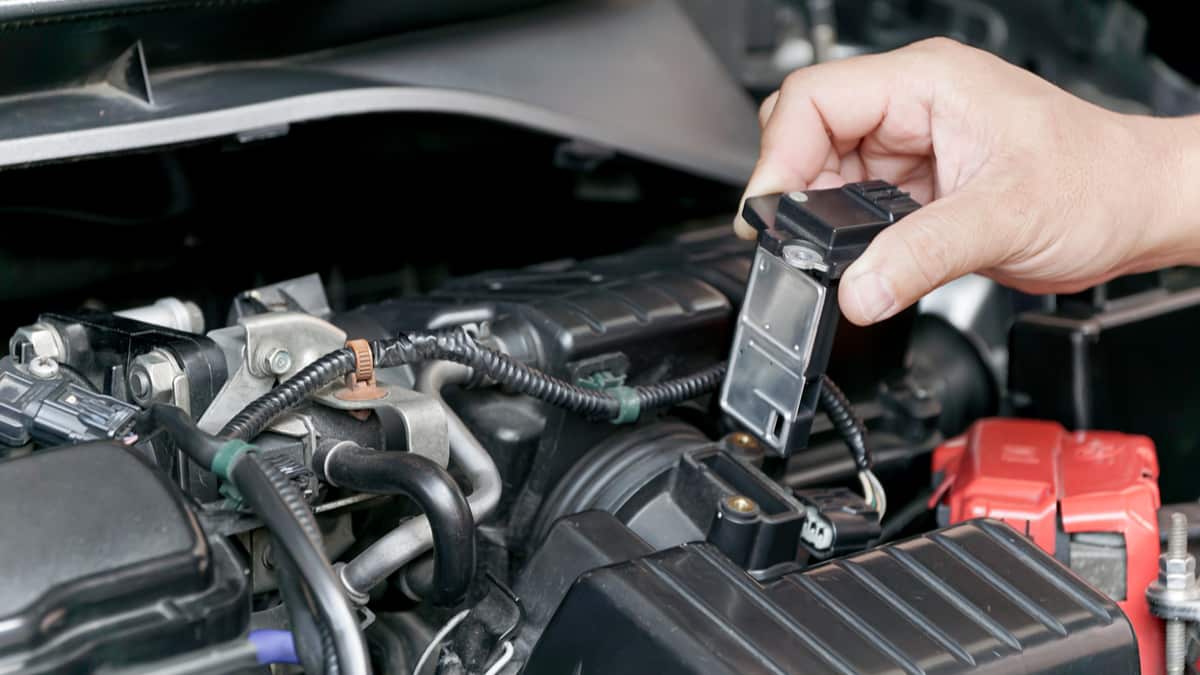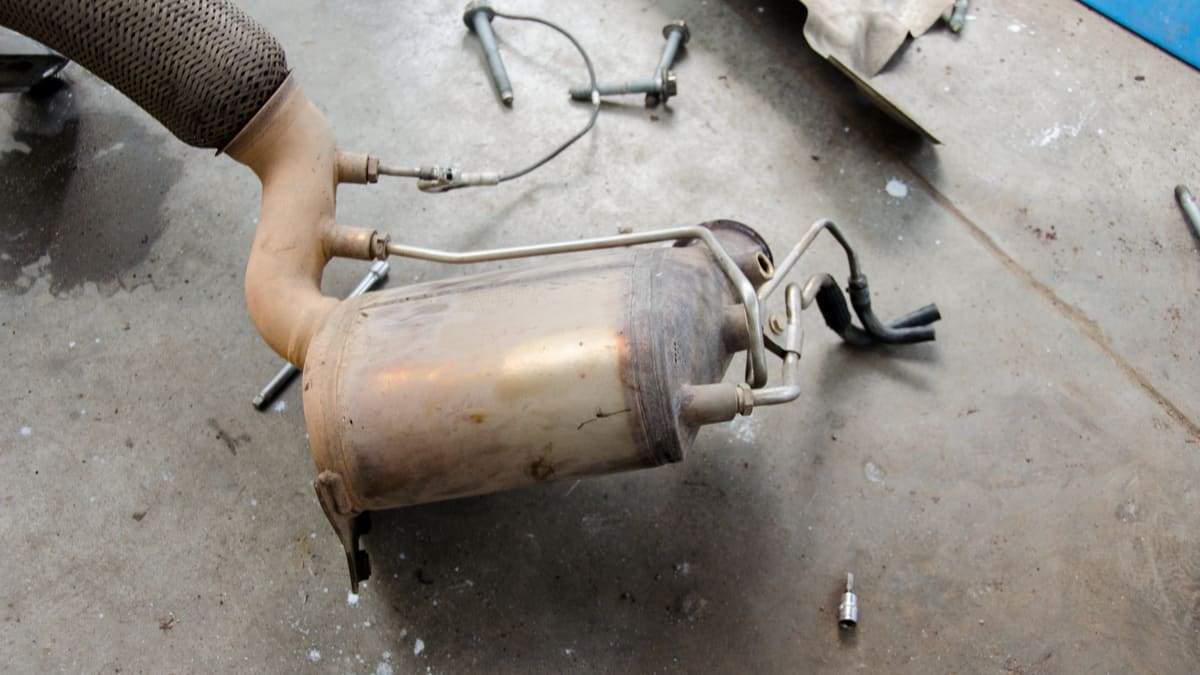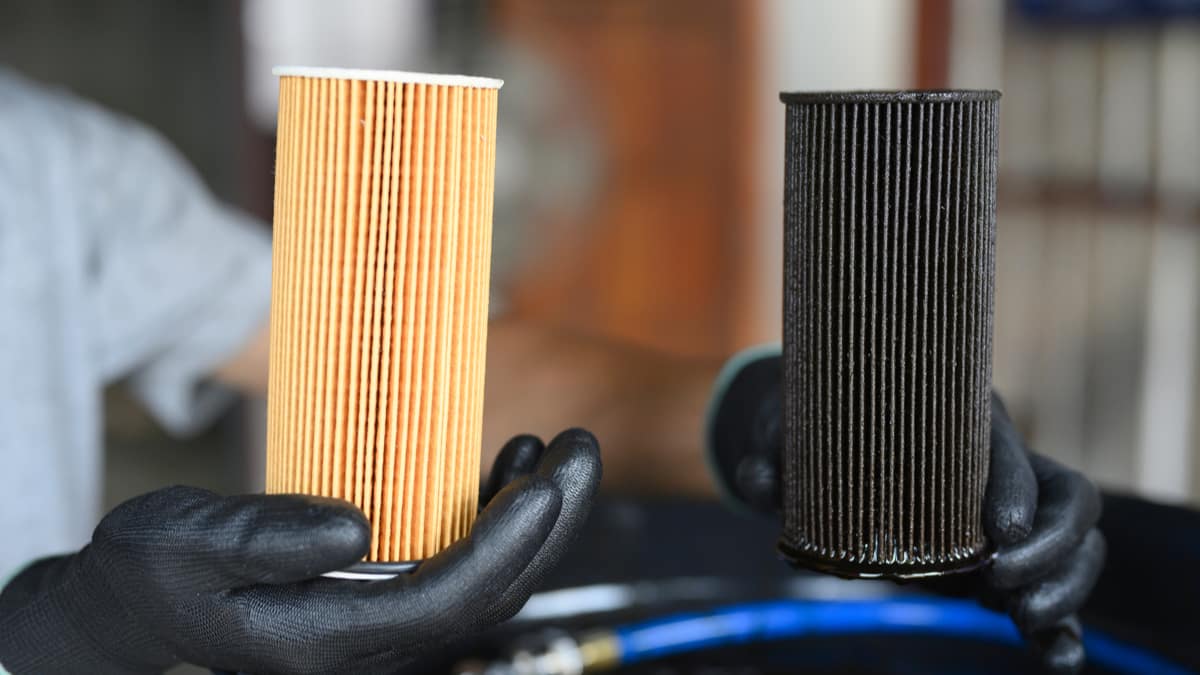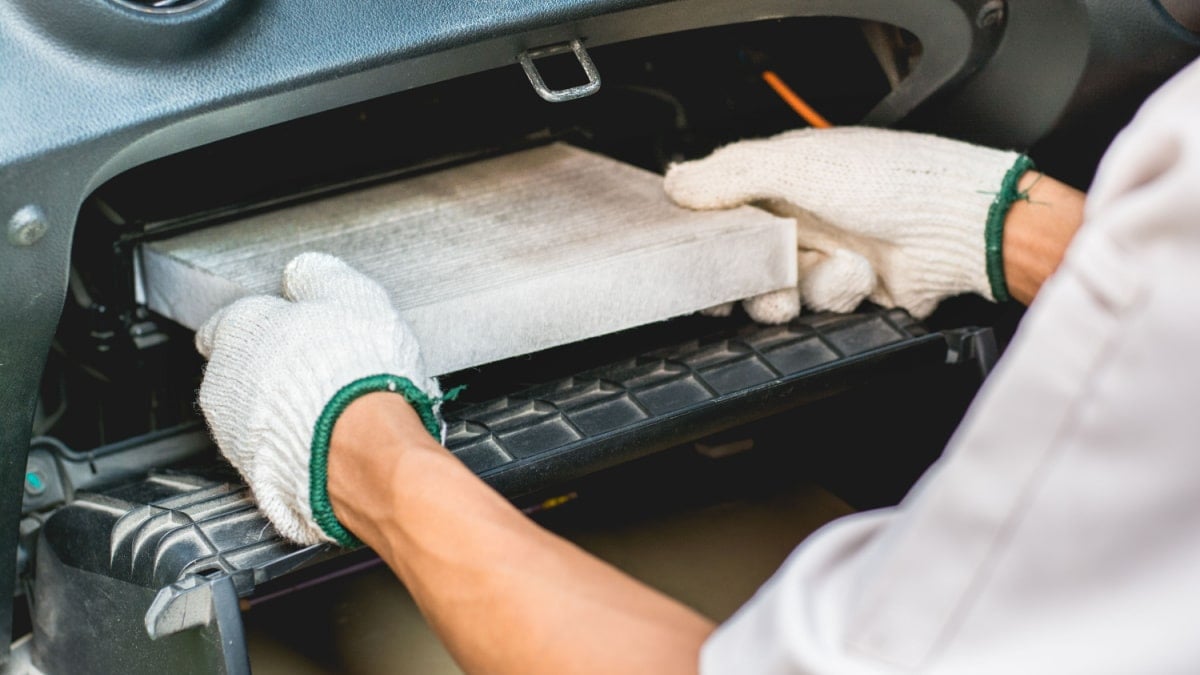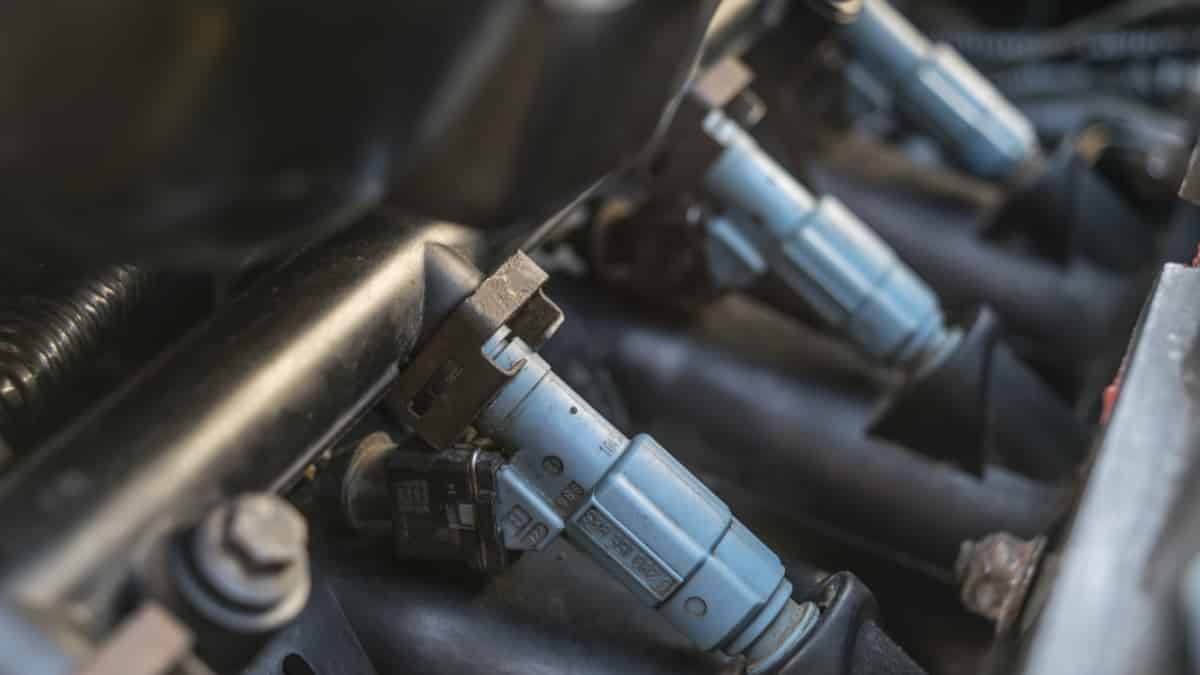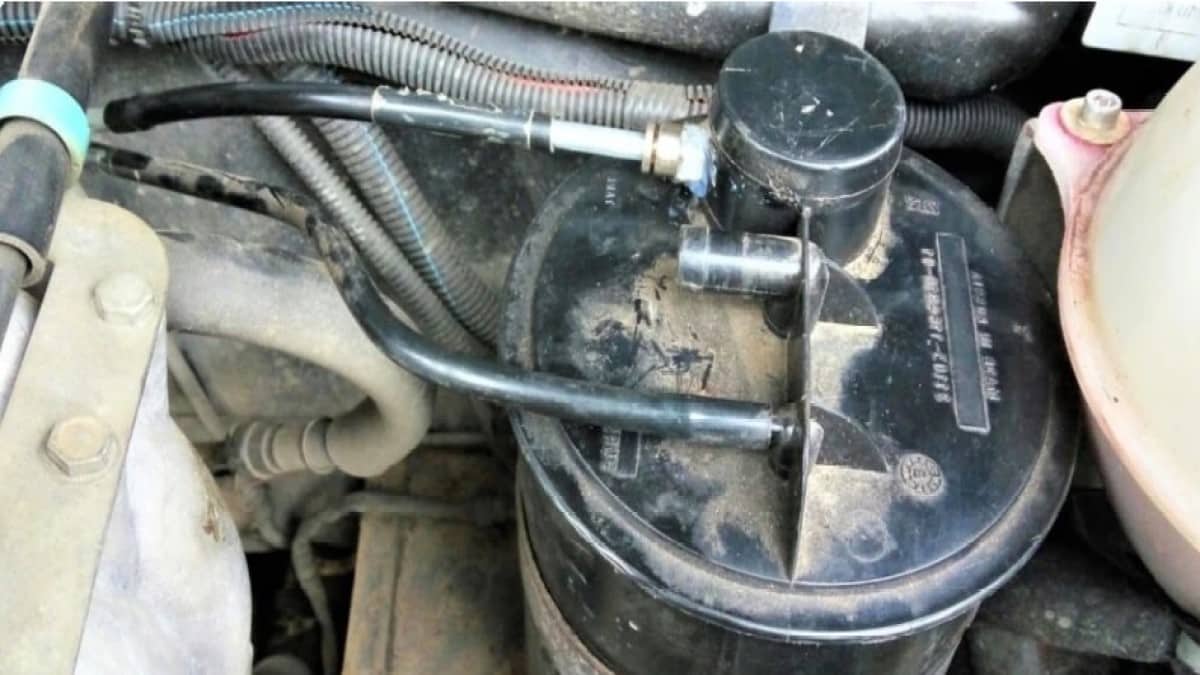Of the many car maintenance tasks you must stay on top of, changing the engine air filter is a top priority. A dirty air filter can lead to numerous problems and make your everyday drive less enjoyable. It can also lead to paying more for the vehicle’s fuel because of excess consumption.
Thankfully, it’s not difficult or expensive to change the air filter in most cars. I review the top symptoms of a dirty air filter and look at how much you can expect to pay for a replacement. Let’s begin with a look at the signs.
Dirty Engine Air Filter Symptoms
The main symptoms of a dirty or clogged engine air filter include:
- Power loss
- Strange engine sounds
- Check engine light
- Reduced Fuel Economy
- Engine misfiring
- Black Exhaust Smoke
- Gas smell
- Visible Contamination
Here is a more detailed list of the signs of a dirty or clogged engine air filter to look for:
1. Power Loss
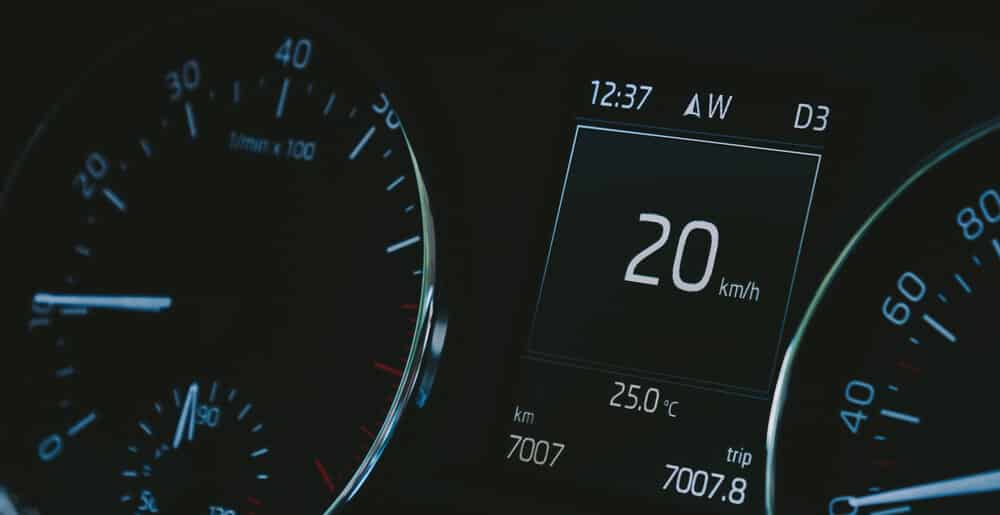
When the filter becomes dirty, it no longer allows enough air to reach the engine. Without the proper balance of air flowing through, the engine can’t run as it is intended. What you are left with is a reduction of power and acceleration.
You might notice this more frequently when you demand more of your vehicle, such as during towing or driving up steep inclines. However, any time that the vehicle feels sluggish, it’s wise to visually inspect the air filter.
2. Strange Engine Sounds
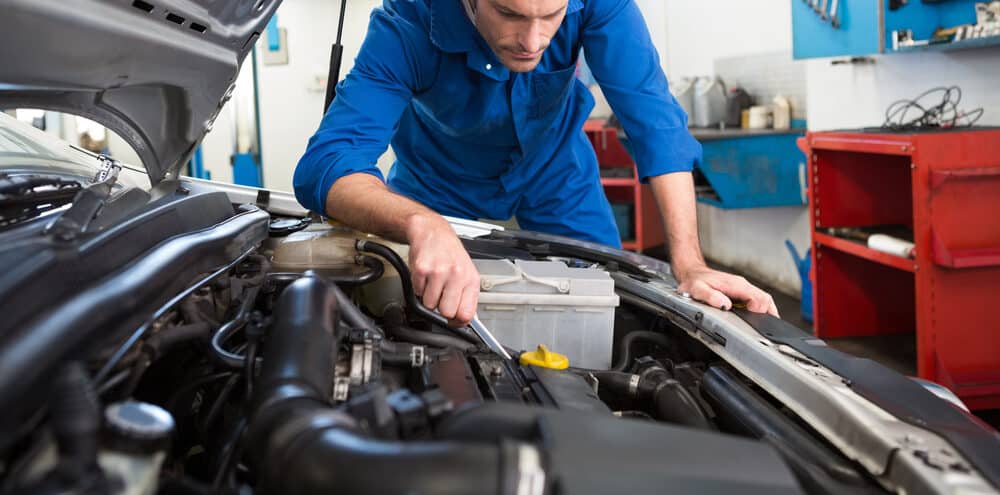
When the engine is running as it should, you should hear a familiar hum coming from the motor. However, when the filter becomes clogged, a lack of airflow can cause some strange sounds.
In some cases, you might hear a sputtering noise or a popping sound. It’s also possible to hear a whistling noise due to the obstructed airflow. The more buildup that is on the filter, the louder the noises can become.
3. Check Engine Light
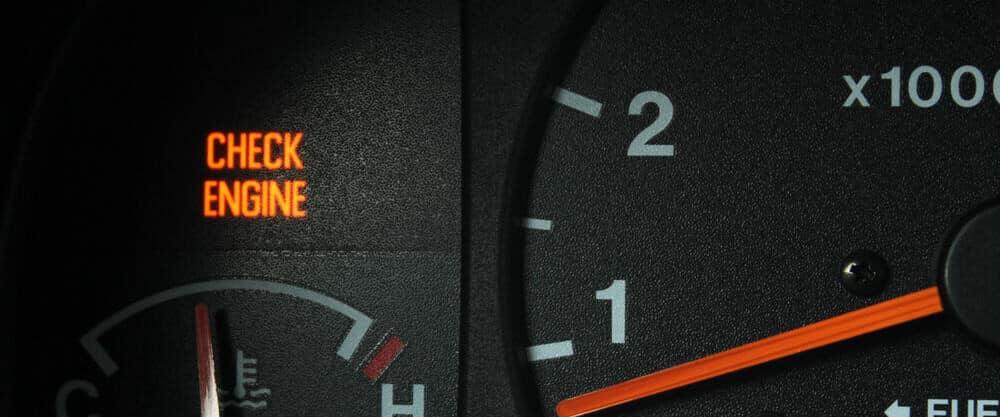
When the filter becomes clogged, the flow of air into the engine is restricted. This inadequate supply means too much fuel is being mixed in.
With more fuel being burned, the carbon deposits start to build up, causing the Check Engine Light to come on. When these warning lights illuminate, you can use a code scanner to hunt down the root of the issue.
RELATED: Check Engine Light On – Meaning, Causes & How to Fix It
4. Reduced Fuel Economy
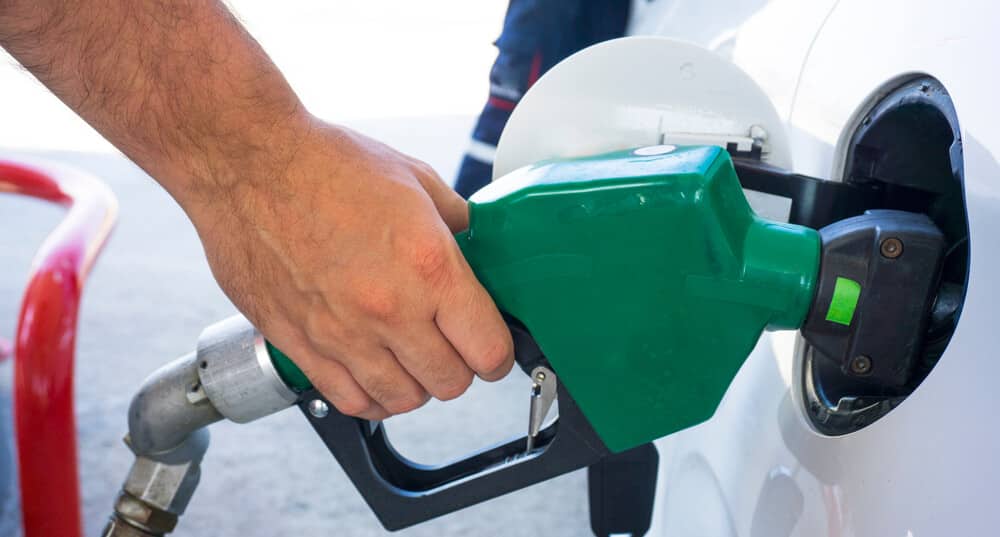
To produce power and momentum, the car engine mixes air with gasoline. However, when the airflow is restricted, too much fuel gets pumped into the engine. When the motor runs rich, you find yourself using more fuel.
Any time that the car is using more fuel, it’s a sign that there’s an imbalance with the engine. Pay attention to how often you are filling up, so you can correct issues before they become major.
5. Engine Misfiring
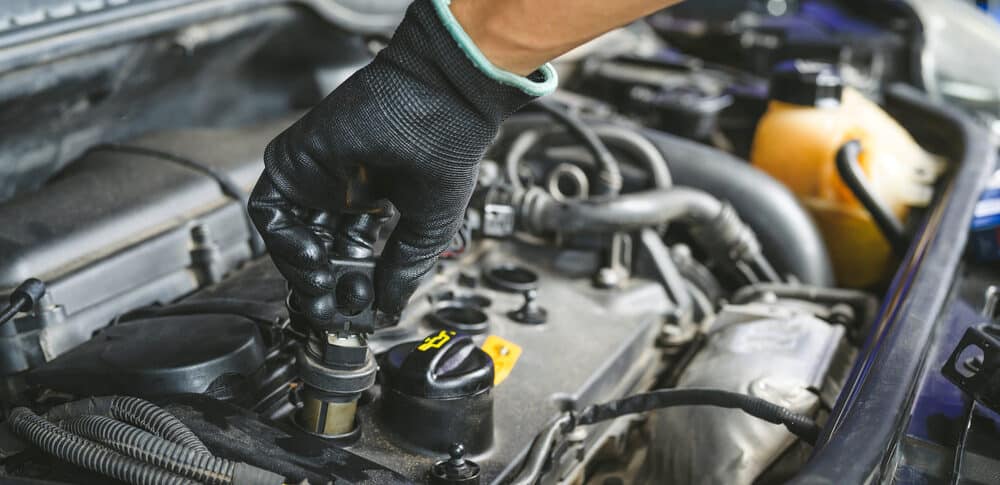
Without the right amount of air entering the combustion chamber, the motor creates more unburned fuel. This extra soot builds up on the tips of the spark plugs.
When the plugs can no longer provide the right level of spark for ignition, the car will misfire and run poorly. You might also notice a rough idle or stalling as a result.
6. Black Exhaust Smoke
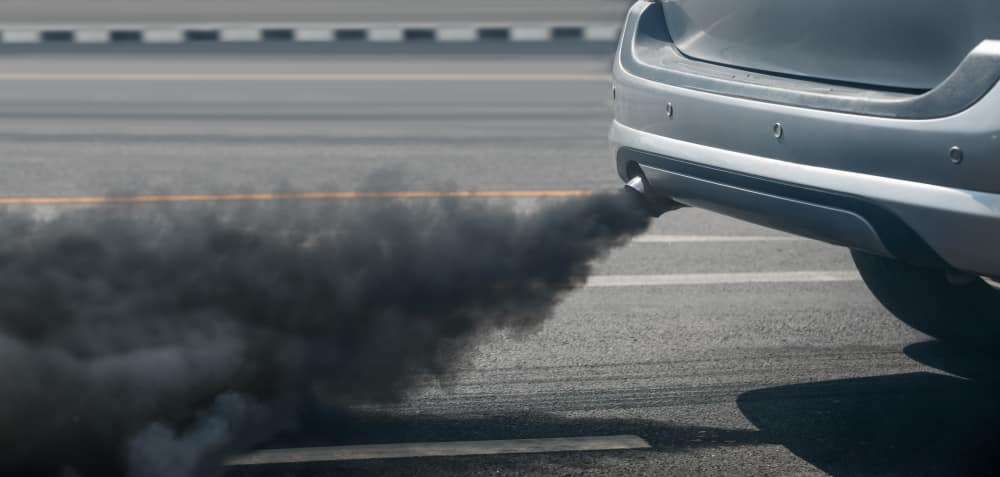
In extreme cases, you are going to see a change in the exhaust smoke leaving the tailpipes. With an incomplete burn of the fuel in the combustion chamber, you will notice black or dark gray smoke coming from the rear of the vehicle.
The color is due to the unburned fuel mixing with the hot exhaust. However, it is also a symptom of a malfunctioning fuel injection system or a bad O2 Sensor.
7. Gas Smell
That unburned fuel can also create a different smell in some cases. The dirtier the filter becomes, the more you might notice this smell.
Additionally, other issues can cause a gasoline smell. For that reason, it’s important to perform a complete diagnosis before determining what’s causing the odor.
8. Visible Contamination
If you can visually look at the air filter, you will notice the signs right away. A clean air filter is going to be either white or pale white. Some reusable filters also have plum-colored media.
Once it becomes contaminated, the filter is going to be filled with dirt and debris. It’s going to be naturally dirty and dusty, revealing that it’s time to change it.
Air Filter Location
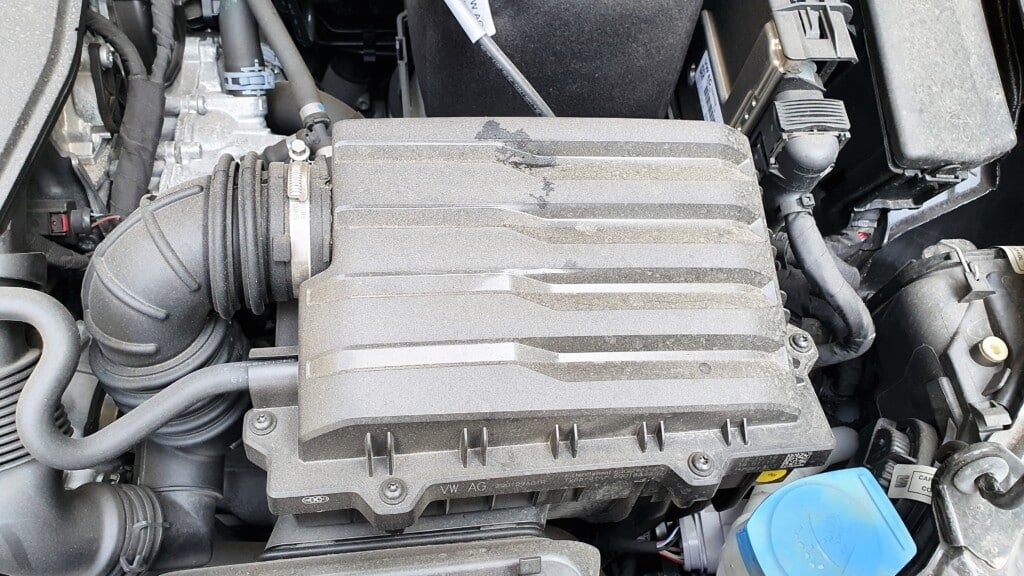
Modern vehicles contain an engine air filter underneath the hood. You can find it in a rectangular-shaped cold air box, often in the front of the engine compartment, where it is easy to access.
If you have an older vehicle with a carburetor, the air filter location might be different. These cars use large round metal air cleaners that are nearly impossible to overlook.
The engine air filter should never be confused with the cabin air filter. The cabin filter keeps the interior air clean and free of contaminants. It is usually found in the glove box or behind the dashboard.
RELATED: 10 Best Engine Air Filters for Cars
The Function of an Engine Air Filter
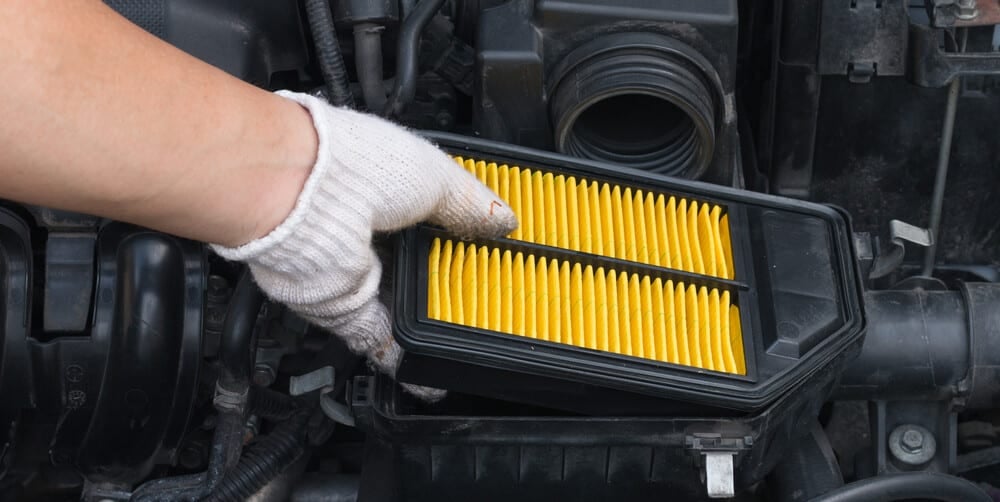
The engine air filter is responsible for keeping contaminants, debris and dirt from getting into the engine through the air. It must remain free of clogs to ensure that the motor gets the right level of air for combustion.
The air filter replacement is part of regular car maintenance because it can become clogged over time. When it gets clogged, the air-fuel ratio in the combustion chamber becomes imbalanced, leading to numerous performance issues.
Air Filter Replacement Cost
The average air filter replacement cost is only $10 to $30 for one made with paper material. In most cars, changing the air filter is a simple process that doesn’t involve any special skills or tools.
If you prefer to install a reusable air filter, you can expect to pay between $30 and $100, depending on your vehicle. These reusable filters can be cleaned out for longer use.
The engine air filter should often be replaced every 12,000 miles or 12 months, whichever comes first. You can find the recommended replacement schedule in your car owner’s manual. However, if you notice any of the above symptoms, you will want to replace the filter sooner. Considering the low cost, it’s one of the first places to start with any engine performance issues.
RELATED: How Often Should You Change the Engine Air Filter?
Can a dirty air filter ruin your engine?
Yes. A dirty air filter can destroy your engine in the long run. If your engine can’t breathe properly, it will create unnecessary heat in the engine which will wear engine parts faster. A dirty air filter can also allow dust to enter the engine, which can damage it.
How does a dirty air filter affect your car?
A dirty air filter will affect your car in many ways, and suffering engine performance is the most common way. Lower engine performance can cause many other problems with your car, which is why it’s important to keep your engine air filter clean.
Can I clean my air filter instead of replacing it?
No. Standard car engine air filters are not washable or reusable. There are aftermarket air filters you can install that are washable, but these cost a bit more in purchase price. However, cleaning an original air filter is never a good idea and will give you a bad result.
Can I drive with a clogged air filter?
While you could probably drive with a clogged air filter if it’s not completely clogged, it’s always a bad idea. A clogged or dirty air filter will cause a higher load on the engine which can damage it. If you are very unlucky, the engine may even suck in parts of the clogged air filter.
Categories: Engine, Maintenance
